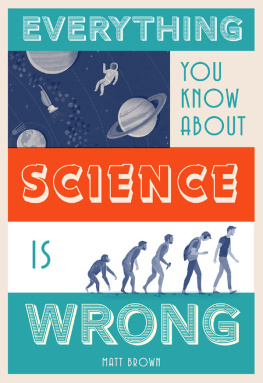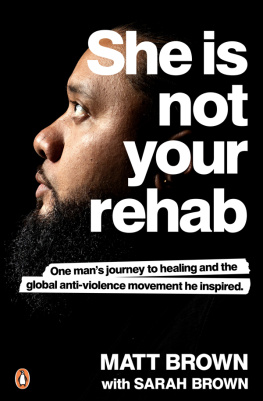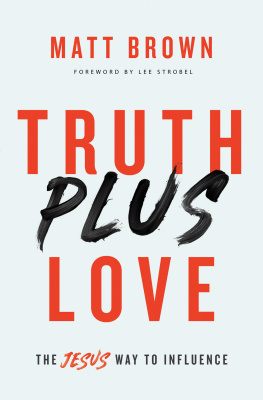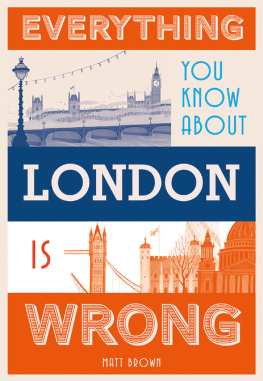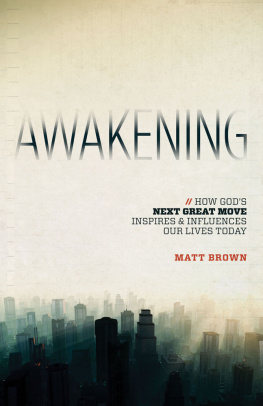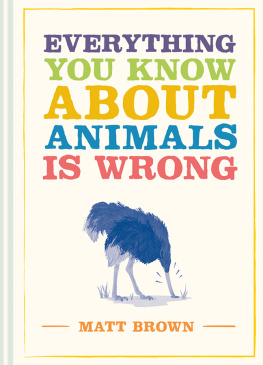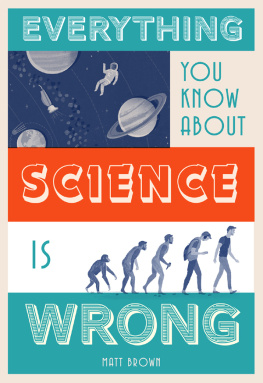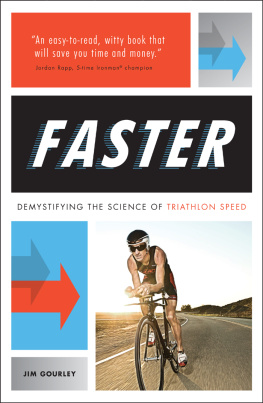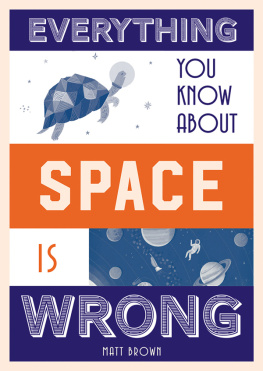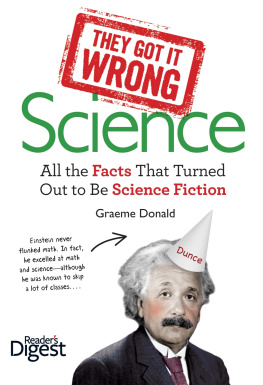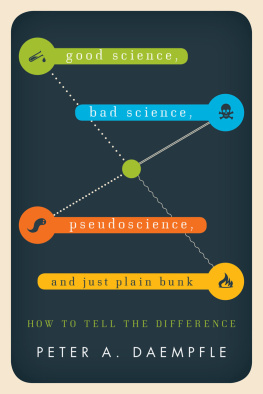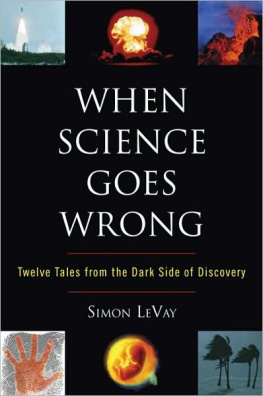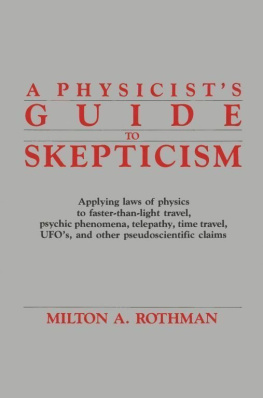Everything You Know About Science Is Wrong
Everything You Know About Science Is Wrong
Matt Brown

Contents
Introduction
Science is Fun! I remember reading that on the side of a pencil, given to me by a representative of the Royal Society of Chemistry. I was only 12 or so at the time, but that piece of stationery must have made its mark. I went on to study chemistry at university and eventually found myself editing a chemistry journal.
And science really is fun, so long as you have a sense of curiosity. Didnt we all feel a thrill when we learnt that humans evolved from chimps, that glass is really a liquid and that nothing can travel faster than the speed of light? Facts like these give us a deeper insight into the world around us. We can impress our friends, or provide our children with convincing answers when they ask Why?.
While science is fun, science mythbusting is even more fun. Despite the copious evidence from reality TV shows, not a single human being is descended from a chimpanzee. Glass most certainly is not a liquid, contrary to what you might have heard. And while the speed of light is fundamentally unbreakable in most circumstances, there are several sneaky ways to outpace it. In exploring such misconceptions, we gain a greater understanding of, and appreciation for, the real science behind the myth.
Mythbusting is not only fun, its also important for everyday life. The world is full of pseudoscience ideas that sound plausible and scientific, but are ultimately worthless. Whole industries are built on the credulity of a trusting public. Homeopathic medicine, detox diets, water ionizers and colonic irrigation all have the ring of scientific plausibility, yet none of them stand up to proper scrutiny. A good grounding in critical thinking can help us avoid wasting our time and money. Meanwhile, science is often twisted and misrepresented by politicians, campaign groups, newspaper columnists and others in positions of influence. With the looming spectres of climate change and antibiotic resistance, and game-changing technologies such as gene therapy and artificial intelligence, it is now more important than ever to be scientifically literate.
This book is a compendium of some of the most common misconceptions about science. Some widely held facts are just plain wrong. Others were once understood to be correct, but have since been overturned by new and better evidence. Still other facts are wrong under certain circumstances or dont present the full picture. Its true that the Moon orbits the Earth, but thats not the whole story.
Throughout the book I use the term science in its broadest sense. Youll find sections that stray into the allied worlds of maths, engineering, medicine and technology. In many cases, especially the section on the nature of science, the brief entries barely scratch the surface. Whole bookshelves could be filled on the relationship between science and religion, for example. So, too, the many misconceptions about evolution, or dubious nutritional claims, which seem to spread as readily as acai berry jam.
In a book full of nitpicking and mythbusting, one does run the risk of sounding uppity; I think youll find are the four most annoying words in the English language. To avoid this, I hope Ive kept the tone light and friendly throughout. For the same reason, Ive minimised the references to scientific literature the book is intended as a whimsical conversation starter rather than a fully annotated dissertation.
Finally, why should you believe my explanations over other sources? Excellent question. You shouldnt. Perhaps the greatest teaching of science is that we dont need belief in order to make sense of the world. Nothing should be taken at face value, including the entries in this book. The reader is encouraged to use what follows as a springboard. The realms of science are vast, fascinating and often misrepresented. Get digging, and let the nitpicking begin!
FOOTNOTE The accompanying sticker, which punned Cuddle a chemist and see the reaction, proved less beneficial to my science career but thats another story.
What is Science?
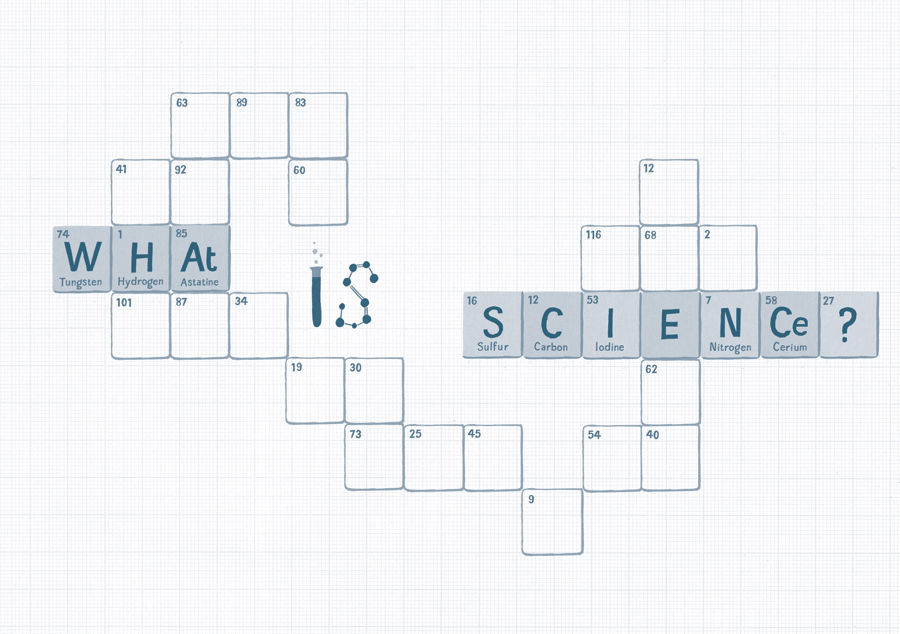
Who do you picture when you hear the word scientist? What do scientists do all day? Are they all superbrains?
All scientists look like this
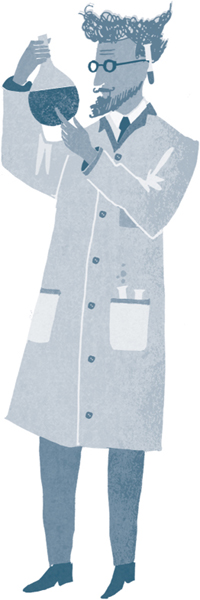
In 2001, the first detailed guide to the human genome was published in the scientific journal Nature. This landmark study was written up by a truly international bunch. Dozens of scientists from the USA, UK, Japan, France, Germany, China, Ireland and Israel all collaborated on the genome. They represented 24 different universities and research organizations. This is positively parochial compared with a 2015 paper on the Higgs boson. Its remarkable tally of 5,154 authors worked in more than 50 countries. Ive not met any of them personally, but I dare say not one of these scientists looks like the character drawn here.
Science is a broad church, employing people of every colour, creed, nationality, gender, temperament, hairline and body odour. You dont have to be crazy to work here, and it really wouldnt help. Yet all too often the word scientist still conjures up the mad professor stereotype. I saw one only this morning while watching an otherwise spellbinding pre-school show with my young daughter. Let us take a leaf from the notebook of Dr Frankenstein and dissect the stereotype scientist into his component parts.
.
Big-haired boffins appear regularly on film and TV. Think Emmett Brown in Back to the Future, Gene Wilders eponymous character in Young Frankenstein, or the goofy scientist in Independence Day played by Brent Spiner. Bald scientists are typified by such characters as Bunsen from the Muppets or Professor X from the X-Men. (The stereotype continues with meth-cooking chemistry teacher Walter White from Breaking Bad, though his hair loss has deeper meaning and one could hardly call him a clich.)
Ive known researchers with no hair, too much hair, wavy hair, spiky hair; blonde, brown, black, red and green hair, or all five at once. In 2012, following the successful landing on Mars of the Curiosity rover, mission engineer Bobak Ferdowsi was dubbed Mohawk Guy for his crested locks. Particularly hirsute individuals can even join a Luxuriant Flowing Hair Club For Scientists. Researchers work at the cutting edge, in more ways than one. It hardly needs saying that, in reality, scientists sport as wide a range of hairstyles as any other sector of the workforce.
Scientists are male Do an image search for Solvay conference. This is an occasional get-together of the worlds top physicists, whose most notable gatherings took place in the early 20th century. A photo from the first conference, in 1911, shows two dozen or so leading scientists grouped around a table. Twenty-two of them have moustaches and one of them is Marie Curie. All are white. Sixteen years later, at the fifth conference, the photo shows 28 white men and Marie Curie. Not much had changed, save for a slight diminution in the popularity of moustaches.
Historically, science, medicine and technology were almost entirely the preserve of men, but it would be wrong to assume that women were totally excluded. The annual Ada Lovelace Day in mid-October celebrates the contribution played by women in these fields, both historically and today. Lovelace (181552) is often considered the worlds first computer programmer; she devised algorithms for Charles Babbages mechanical contraptions.
Next page
